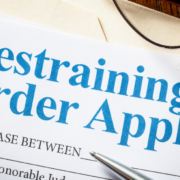You may read stories about people trying to avoid being served with legal papers. This rarely happens, and in most divorces, this critical step is handled without drama by spouses who understand their marriage is ending.
A divorce is a legal action. A necessary step in the process is serving the non-filing party (the defendant) with the complaint. Most divorces are not surprises, and agreements are often worked out before a divorce complaint (which is filed with the court stating the party seeks a divorce, why, and the basic facts of the case) is finalized. Usually, service, though necessary, is a formality.
What is Being Served?
That complaint is completed and filed with the court. A copy is provided (or served) to the defendant. The court will not want to proceed without proof the other spouse has a copy of the complaint.
In Pennsylvania, your spouse must be “personally served” with the complaint (though that does not necessarily mean they are handed the complaint), a notice that the party can defend their rights, a counseling notice, and any other documents filed with the complaint at the courthouse. This must be accomplished within 30 days of the complaint’s filing (90 days if they live out of state).
How Can My Spouse Be Served?
Service can be accomplished by:
- An unrelated individual older than 18 hands the documents to your spouse and fills out an affidavit describing how that happened. There are companies whose employees provide this help (people referred to as process servers) as well as the local sheriff’s department.
- Certified mail with restricted delivery is a cheaper route and an option when the two of you cooperate to end your marriage. With this kind of delivery, there would be an acceptance of service form for your spouse to sign.
- The defendant’s attorney accepts service on their client’s behalf. If your spouse is not represented, they may consent to our office mailing them the complaint, and then they fill out the acknowledgment of service form.
The defendant has 90 days after service of the complaint to file an answer in response. The service process is similar in New Jersey, but the defendant has 35 days to file an answer.
Why Should I Not Do This Myself?
There are many benefits to hiring an attorney to represent you in a divorce. The process can involve several steps involving various filings with different requirements and deadlines, depending on your case’s complexity and how much the two of you work together to finalize the divorce.
A significant benefit of retaining our services is we deal with all these details, including service, not you. You do not have to worry about whether your spouse will try to run and hide from the process server or if the service will be on time. You will not have to spend time recruiting your neighbor’s unemployed son to serve the papers.
Divorce is stressful enough. Why add to it by trying to do it on your own? Making sure all the requirements of the divorce process are followed is a crucial part of what we do. This allows you to spend your time and energy on more important things like your well-being, job, and kids.
Contact Karen Ann Ulmer, PC, today because we are here to help. If you are considering getting divorced and have questions, or you have decided it is right for you and you need legal representation, call us today.










